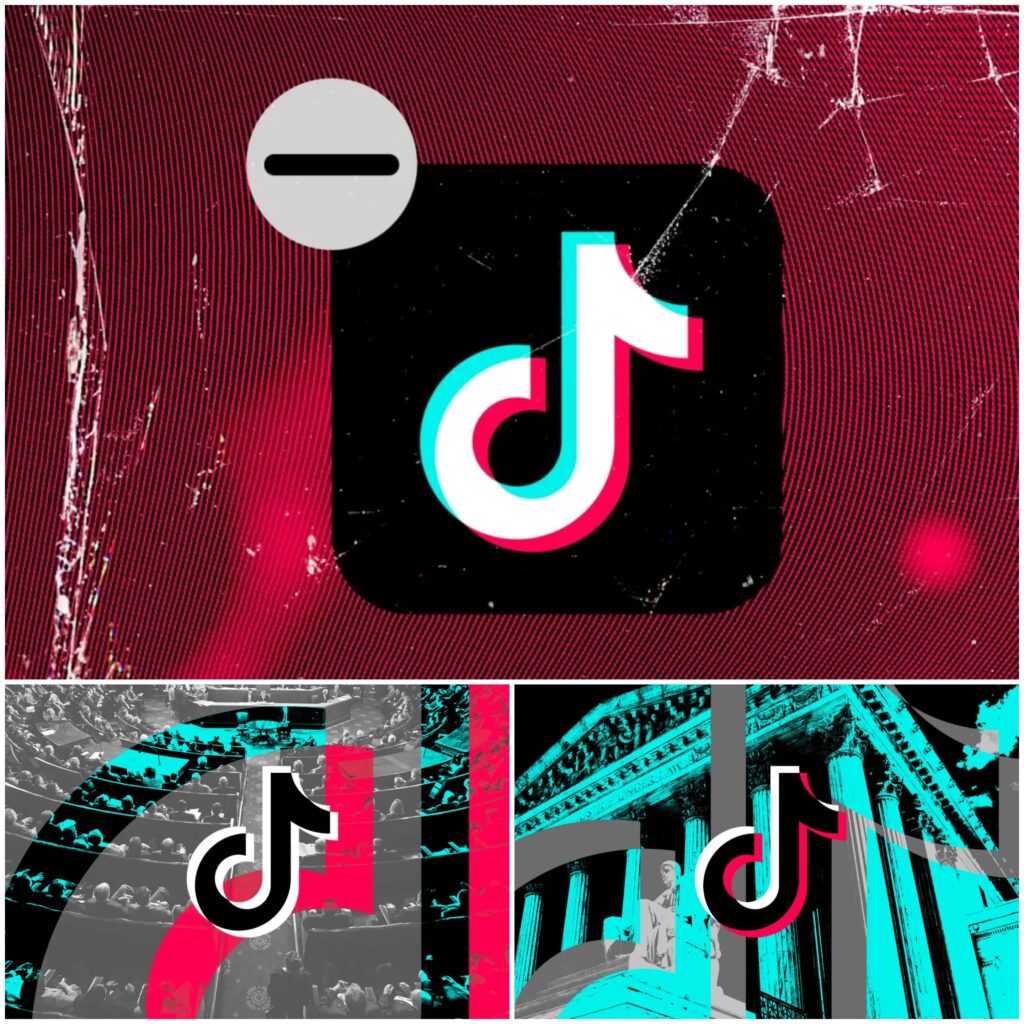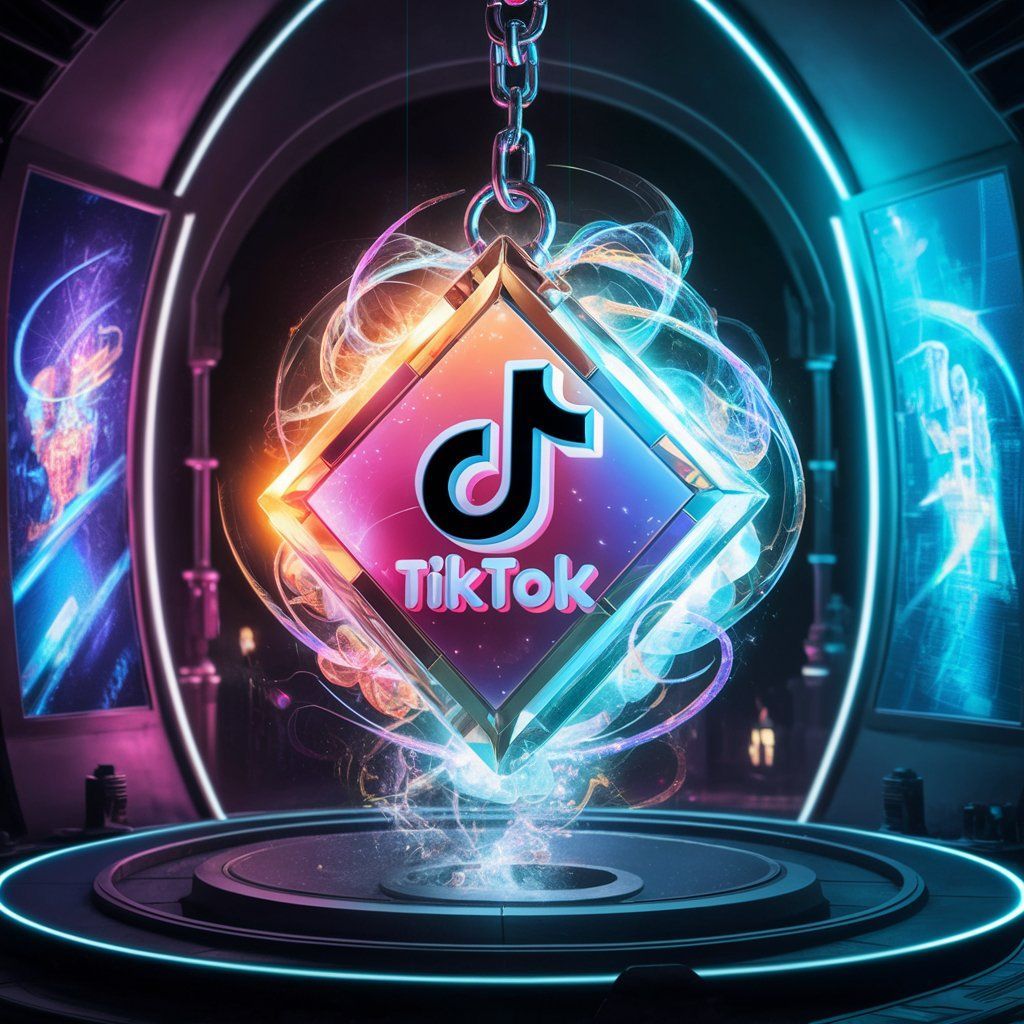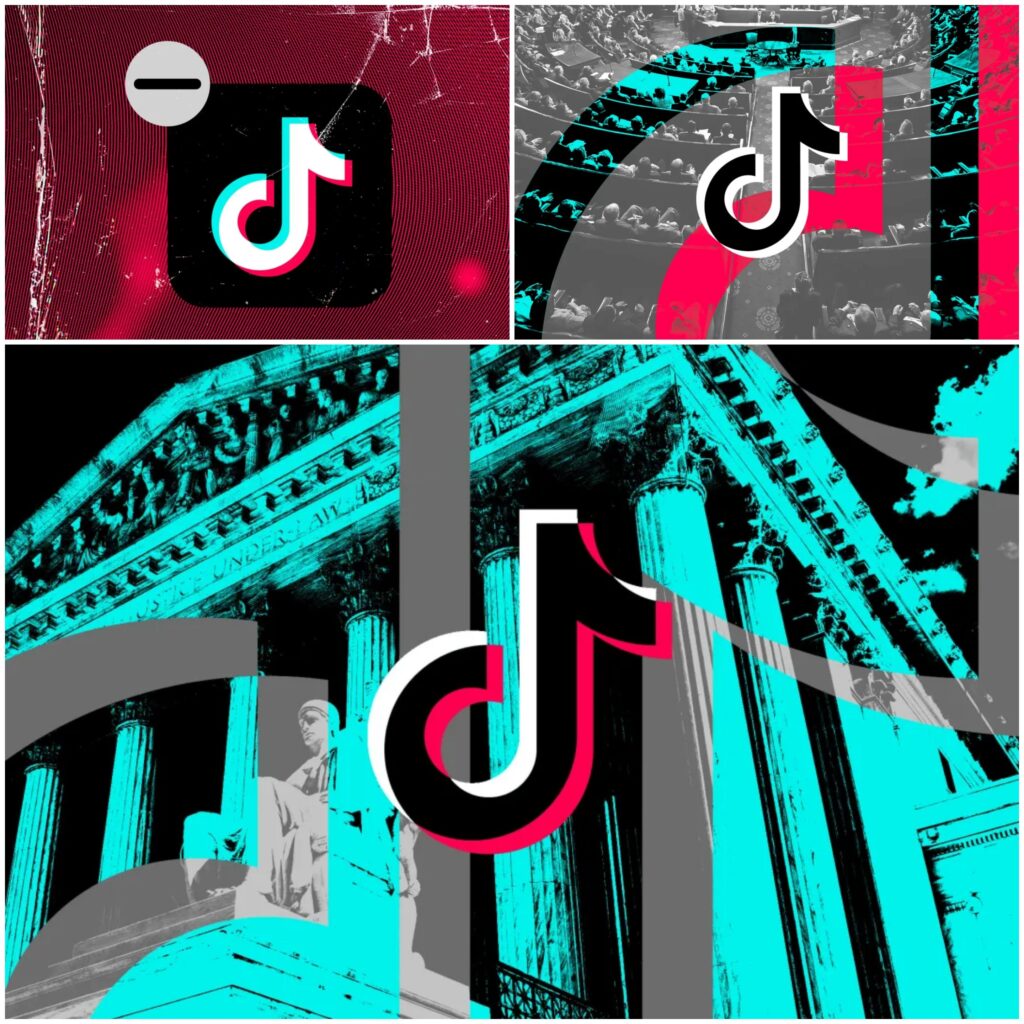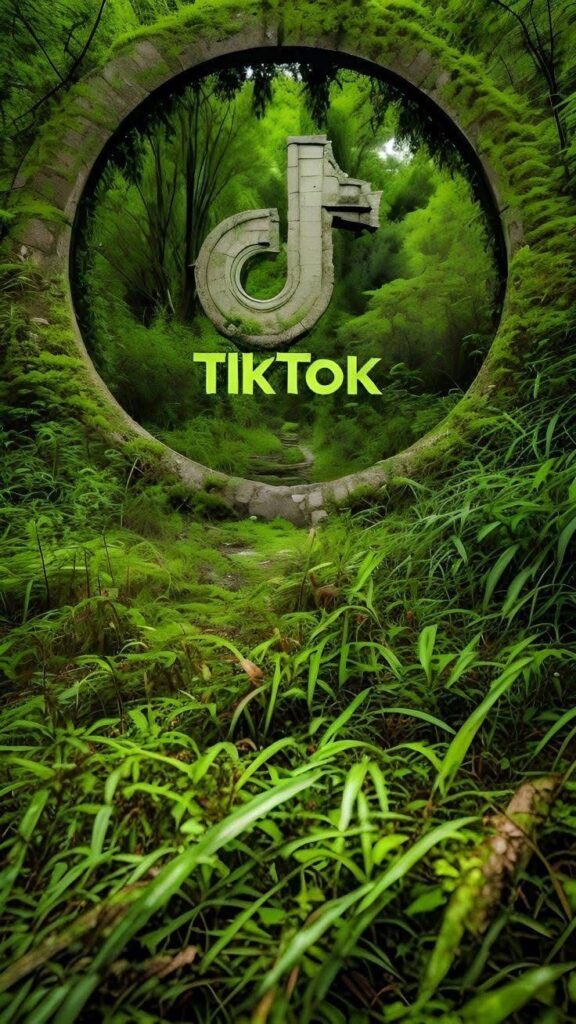



On Sunday, January 19th Over 170 million people in the United States lost access to video-sharing app Tik-tok – the fifth most popular app in the world. Under federal legislation signed by outgoing president Joe Biden, Bytedance, the parent company of Tik-Tok, was required to sell the app by January 19th or risked being banned in the United States, automatically cutting of access from internet hosting providers and app stores in the country. That legislation was upheld by the Supreme Court, putting a final nail in the coffin.
With this, waiting in the sidelines, an overwhelming number of people will be affected including over 27 million content creators, who might stand to lose a significant source of revenue and maybe forced to rebuild their presence on apps where they may not be as well known.
Creators like Jowodaa, Inicash and TheOddity says if ever there eventually be a ban placed that would affect the sense of community and economic prospects the video-sharing app has provided Africans in diaspora.
Famous Nigerian(African) Content Creator Sofiyat Ibrahim also known as TheOddity in United States making content on her Newly acquired Apartment
But for African content creators in the United States, the ban if it eventually takes effect it would definitely have even more consequences. Many say American creators on Tiktok are too indispensable to the app for it to be banned in the United States. This creator demographic includes African creators who regularly contributes to trends on the app. Creators like Maame Adwoa, who goes by Jowodaa on Tiktok, have pioneered famous Tiktok sounds, including the widespread “Quick Quick Snack trend”.
Famous Ghanian(African) Content Creator Maame Adwoa popularly known as Jowodaa
“Tiktok has played a pivotal role in shaping my work as a creator,” Adwoa says. It has allowed me to collaborate with brands and individuals that I might not have encountered otherwise. Over the years, the positive reception of my work has helped in broadening my perspective and challenged me to continue evolving as a content creator.”
Inioluwa Olu-Owotade, known famously as Inicash, also attests to the transformative power of the Tiktok app in his work as a creator. “It’s one of the few platforms were creativity is rewarded instantly,” Owotade says. “I can post something, and within hours, people in lagos, London, or even Los Angeles are engaging. That reach is priceless for someone like me who thrives on Storytelling and audience interaction”

Famous Nigerian (African) Content Creator Inioluwa Olu-Owotade popularly known as Inicash
IF THE BAN TAKES EFFECT…WHAT WILL BE MISSED?

Like many others, Africa content creators in the United States will have to contend with the end of a platform that rewards their creativity. “Many creators, especially those who’ve built businesses on the app, are deeply concerned about the potential impact and are not taking it lightly,” Adwoa says.


While Black creators face issues of pay disparity and low content visibility on the app despite pioneering many of the dances and viral sounds, African creators on the platform who create for both local and international audiences are often at a greater disadvantage as they keep finding innovative ways to make content that appeals both the American and the global audience. But that doesn’t limit the app’s impact.
“It’s a space where we’ve been able to amplify our voices, share our stories, and connect with the global audience without a middleman,” Owotade says. “A ban will feel like taking a microphone away from someone who’s finally being heard. It could also slow down the momentum we’ve built overtime to showcase African culture to the world, which the app has been instrumental in.”
Above all, the app helps these African creators connects with cultures on the continent and stay in touch with the happenings in their home countries while simultaneously providing a platform for them to amplify those cultures and stories.
While Sofiyat Ibrahim, also famously known as the Oddity, says, “I’ll miss the authentic, real conversations that folks have on Tiktok. I mean, Ditty december discourse, African music trends, dances and diasporan wars, whether we like them or not. It’s truly a special place.”

Adwoa, who staunchly opposes the ban, says she will miss the sense of community the app provides. “it wasn’t just a platform for learning and creativity buy also a space for people to release stress and share laughs. If the App is finally banned, that connection and joy will be missed.
The ban on TikTok in the United States could significantly undermine African creators based there, threatening their income, community, and ability to share culture with a global audience. A ban could also result in a lot more reduced compensation and also fewer opportunities for creators outside of the U.S due to a significant loss of a major advertising market.
POTENTIAL CONSEQUENCES FOR AFRICAN CREATORS
Economic opportunities in jeopardy
African influencers have leveraged TikTok to earn substantial incomes through collaborations with brands, both local and international. However, a U.S. ban could lead to reduced visibility for these creators, limiting opportunities to work with U.S.-based brands.
For example, TikTok Shop, which has started transforming e-commerce in Africa, could lose its potential to grow through partnerships with U.S. consumers and investors. African entrepreneurs who rely on TikTok for product visibility and customer engagement might need to pivot to alternative platforms like Instagram Reels or YouTube Shorts.
- Reduced earnings: For many creators and small businesses, TikTok is a vital source of income through brand deals and the TikTok Shop. Losing access to the US market would severely limit opportunities with US-based brands and advertisers, who contribute substantially to TikTok’s global ad revenue.
- Lower global payouts: With the loss of US advertising dollars, TikTok might reduce its compensation for creators worldwide. African creators already receive lower pay than their Western counterparts for comparable work, making them disproportionately vulnerable to these cuts.
- Disrupted cross-border commerce: African entrepreneurs and small businesses rely on TikTok’s algorithm to reach consumers in lucrative Western markets. A ban would eliminate this crucial pipeline, leaving many vendors stranded and without a customer base.
Blow to cultural exchange and visibility
TikTok has been a powerful platform for African creators to showcase their music, dance, and art to global audiences. The rise of Afrobeat, Amapiano, and other African music genres owes much to TikTok’s algorithm, which amplifies content beyond borders.
If African content creators lose access to U.S. audiences due to a TikTok ban, it could hinder the spread of African culture to one of the world’s most lucrative markets. This would slow down the momentum African creatives have built in promoting cultural heritage globally.
In recent years, TikTok has evolved into more than just a social media app. For many African creators, businesses, and cultural ambassadors, it has become a tool for economic empowerment, global visibility, and cultural exchange. But what happens if the United States bans TikTok? While such a decision would primarily target U.S.-China relations, its ripple effects could significantly impact Africa.
- Loss of a global stage: TikTok has been instrumental in amplifying African music genres, dance, and cultural trends to a global audience. A ban would silence this cultural launchpad, potentially stalling the global momentum of African creative movements and music genres like Afrobeats and Amapiano.
- Hindered cultural connection: For African diaspora in the US, TikTok is a vital space for connecting with culture from their home countries. A ban would disrupt authentic conversations and cultural exchanges, cutting them off from a platform where they feel heard.
Challenges in adapting to alternative platforms
- Algorithm-driven success: TikTok’s algorithm is known for boosting the discoverability of smaller creators. Alternative platforms like YouTube Shorts and Instagram Reels have different, more competitive algorithms that may not benefit African creators in the same way, forcing them to start over.
- Difficult audience migration: While many African creators are encouraging their followers to move to other platforms, there is no guarantee that their entire audience will follow. Rebuilding community and engagement on a new platform is a challenging and uncertain process.
- Increased market fragmentation: A US ban could accelerate the trend towards a fragmented internet, with different countries relying on different platforms. This could further isolate African creators and limit their access to global markets and monetization opportunities.
What creators can do to Adapt
- Diversify platforms: It is crucial for creators to build a presence on multiple social media platforms, such as YouTube Shorts, Instagram Reels, and Snapchat, to avoid dependency on a single app.
- Build owned channels: Establishing owned channels, like an email newsletter or a community on an independent website, provides a direct line of communication with audiences that cannot be taken away by a platform shutdown.
- Repurpose content: Creators can download their existing TikTok content and adapt it for other platforms to re-engage their audience and build a new following.
- Explore new alternatives: Some creators are already migrating to emerging alternatives like RedNote or exploring platforms focused on direct creator monetization, like Fanbase, which could offer new avenues for growth.
Opportunities for Local Innovation
While challenges loom, a TikTok ban in the U.S. could spark innovation across Africa. It may prompt African developers to create regional social media platforms tailored to the continent’s unique cultural and technological needs.
For instance, local alternatives could incorporate elements of African storytelling, language, and traditions while ensuring user privacy — a growing concern in the global tech space. This could also align with the rising interest in decentralized, Web3-based platforms that prioritize creator independence.
Spotlight on Digital Sovereignty
The possibility of a TikTok ban raises questions about digital sovereignty and platform dependency. African governments might use this moment to reflect on their reliance on foreign tech platforms and consider strategies to support homegrown apps.
Additionally, partnerships with Chinese tech firms might deepen as Africa aligns itself with emerging markets that resist U.S.-led tech restrictions. This could lead to increased investment in digital infrastructure and innovation across the continent.
Social Advocacy and Youth Engagement
TikTok is more than entertainment — it’s a tool for social movements and advocacy. African youth have used the platform to amplify issues such as #EndSARS in Nigeria and climate activism.
A U.S. ban could reduce the visibility of African social movements to global audiences, potentially weakening solidarity and international support. However, African youth might adapt by migrating to other platforms or experimenting with decentralized options that offer similar reach and engagement.
The Music Industry’s Disruption
Africa’s music industry, one of the continent’s fastest-growing sectors, could also feel the heat. TikTok has become a launchpad for viral African hits that reach global charts. A U.S. ban might disrupt this dynamic, forcing artists and labels to invest more in alternative promotional strategies.
IF THE BAN HAPPENS TO TAKE IMMEDIATE EFFECT,THE NEXT STEP GOING FORWARD?
For many creators, the next step in any case the ban takes effect will be to diversify and move their community to other platforms. The video-sharing platform RedNote, which is gaining popularity amongst U.S based content creators and users, has been a great alternative to Tiktok and it’s users for it’s similar designs and functionalities.
Ibrahim says diversification has helped her stay ahead of the curve, such that Tiktok now represents only 35% of how she disseminates content. “The biggest advice I have for creators, not just African creators, is to diversify,” she says. “For many creators like myself who diversify, Tiktok’s potential ban just mean another opportunity to pour into apps like YouTube shorts and Snapshots spotlight, but for other creators, I understand and recognize that this is a loss of a huge source of income and engagement.”
Adwoa says her community of fellow African creators in the U.S is approaching the situation with humor and trying to lighten the gravity of the situation as a way to cope and as another way to stay hopeful.
“There’s a strong hope that the ban won’t go through,” Adwoa posits. She believes that if it does happen, many creators like herself are confident that their community will follow them to other platforms.”
According to her, “While starting over won’t be easy, we’ll adapt and continue creating. We’ll thrive, no matter the platform.”
After briefly going dark in the US to comply with the divest-or-ban law targeting ByteDance that went into effect on January 19th, TikTok quickly came back online, but it was still missing from app stores.
That persisted even after Donald Trump issued an executive order “instructing the Attorney General not to take any action to enforce the Act for a period of 75 days from today” on January 20th, but on February 13th, Google and Apple both restored TikTok’s listings in the App Store and Google Play.
The ban law is still on the books as politicians and business leaders work on what to do next, and the clock is ticking on the current extension.
Senator proposes calling off the TikTok ban — legally. On July 31st, 2025

President Donald Trump has repeatedly ignored the bipartisan law banning TikTok from operating in the US unless it’s separated from Chinese parent company ByteDance. Sen. Ed Markey (D-MA) is calling for a new way to avoid a ban without breaking the law. In a draft bill, Markey proposes letting TikTok operate in the US as long as it provides transparency into its content moderation and keeps US user data out of countries like China.
On August 20th, 2025, While it was President Joe Biden who signed the law that would force ByteDance to sell its stake in TikTok or face a ban, it’s his successor, Donald Trump, who has yet to fulfill his promise of arranging a deal to keep TikTok running, legally, in the United States. The current deadline for a deal is September 17th. Still, it hasn’t stopped Trump’s administration from creating @WhiteHouse on TikTok, which published its first post on Tuesday night: a video celebrating Trump’s accomplishments.
The ban has only seen TikTok shut down in the US for one day, and its impact has been delayed three times. The first time was in January, when Trump took office and signed an executive order delaying enforcement of the ban for 75 days; then there was another delay in April, after a potential deal fell through due to Trump’s harsh tariffs against China, and then in June, when he stated that he believed Chinese President Xi Jinping was open to a deal if a buyer emerged.
While Trump tried to ban TikTok in 2020, his stance softened during his re-election campaign once his team learned how many supporters Trump had on the platform. In 2024, the Trump campaign launched its own official account, @TeamTrump, and quickly dominated the platform, getting more followers and views on their content than former Vice President Kamala Harris’s now-dormant campaign account — 2.8 billion to 2.2 billion, according to journalist Kyle Tharp. A Republican digital operative close to the campaign heavily credited Trump, a former reality TV star, for his ability to generate attention-grabbing moments that could be transformed into viral content. “TikTok is primarily an entertainment app,” he previously told The Verge, “and our usage of it was just significantly more savvy than [the Democrats].”
Although the legality of and ulterior motives behind a TikTok ban remain a serious question, the Trump administration, for now, appears to find utility in maintaining an account on the platform. “Why would I want to get rid of TikTok?” Trump said on Truth Social in January, sharing a post about the billions of views his campaign account continued to rack up. White House press secretary Karoline Leavitt repeated this stance after the government account was launched. “President Trump’s message dominated TikTok during his presidential campaign,” she said in a statement to The Verge, “and we’re excited to build upon those successes and communicate in a way no other administration has before.”

